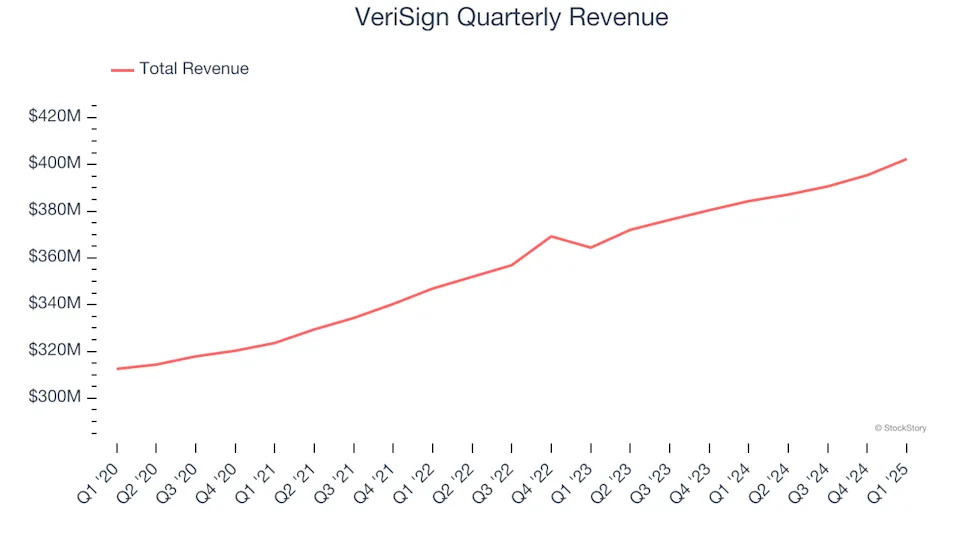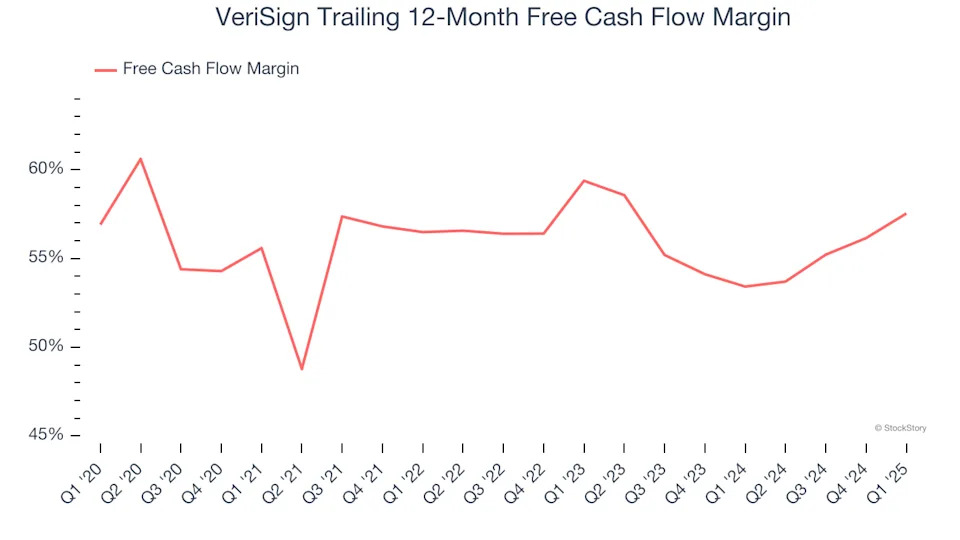
VeriSign’s (NASDAQ:VRSN) Q1 Earnings Results: Revenue In Line With Expectations
Domain name registry operator Verisign (NASDAQ:VRSN) met Wall Street’s revenue expectations in Q1 CY2025, with sales up 4.7% year on year to $402.3 million. Its GAAP profit of $2.10 per share was in line with analysts’ consensus estimates.
Is now the time to buy VeriSign? Find out in our full research report .
VeriSign (VRSN) Q1 CY2025 Highlights:
“Verisign delivered solid results in the first quarter. As part of our ongoing commitment to return value to shareholders, I’m particularly pleased to announce the initiation of a quarterly cash dividend,” said Jim Bidzos, Executive Chairman, President and Chief Executive Officer.
Company Overview
While the company is not a domain registrar and does not directly sell domain names to end users, Verisign (NASDAQ:VRSN) operates and maintains the infrastructure to support domain names such as .com and .net.
E-commerce Software
While e-commerce has been around for over two decades and enjoyed meaningful growth, its overall penetration of retail still remains low. Only around $1 in every $5 spent on retail purchases comes from digital orders, leaving over 80% of the retail market still ripe for online disruption. It is these large swathes of the retail where e-commerce has not yet taken hold that drives the demand for various e-commerce software solutions.
Sales Growth
Reviewing a company’s long-term sales performance reveals insights into its quality. Any business can have short-term success, but a top-tier one grows for years. Over the last three years, VeriSign grew its sales at a weak 5.3% compounded annual growth rate. This fell short of our benchmark for the software sector and is a rough starting point for our analysis.

This quarter, VeriSign grew its revenue by 4.7% year on year, and its $402.3 million of revenue was in line with Wall Street’s estimates.
Looking ahead, sell-side analysts expect revenue to grow 3.8% over the next 12 months, similar to its three-year rate. This projection doesn't excite us and implies its products and services will see some demand headwinds.
Today’s young investors likely haven’t read the timeless lessons in Gorilla Game: Picking Winners In High Technology because it was written more than 20 years ago when Microsoft and Apple were first establishing their supremacy. But if we apply the same principles, then enterprise software stocks leveraging their own generative AI capabilities may well be the Gorillas of the future. So, in that spirit, we are excited to present our Special Free Report on a profitable, fast-growing enterprise software stock that is already riding the automation wave and looking to catch the generative AI next .
